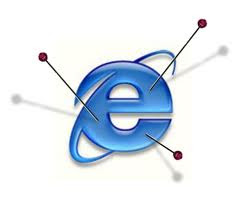
Whereas Internet Explorer is a very popular browser, you may have problems with it from time to time. Internet Explorer has been known to either randomly shut down or close pages. This can be extremely irritating, especially if you are in the middle of a project. Use these tips to fix Internet Explorer if it keeps closing Web pages.
Instructions
Start by deleting your browsing history. Open Internet Explorer and click the "Safety" tab found in the top right corner of the Web browser. Then, choose the "Delete Browsing History" option. A box will appear on the computer screen. Make sure that there are checkmarks next to each option listed in the box. Click the "Delete" tab to delete the browsing history. Move to the next step if Internet Explorer keeps closing pages.
Download, install and then run both an anti-malware and an anti-virus software program. Spyware, adware, viruses and other similar infections can cause Internet Explorer to shut down or close pages. Deleting your browsing history may not take care of these problems. Spybot and AVG Anti-Virus are two very useful free programs that will search for and remove harmful infections from your computer. You can download these two programs by using the links in the Resources section below. Go to step 3 if you are still experiencing problems with Internet Explorer.
Try resetting the Internet Explorer settings. Open Internet Explorer and then click "Tools." Choose "Internet Options." Click the "Advanced" tab. Then, click "Reset" found at the bottom of the box. A second box will appear on the screen. Click the "Delete personal settings" option and then click "Reset." You will need to restart Internet Explorer to finish the process. Go to the next step if Internet Explorer continues to close pages.
Run Windows Update. Open Internet Explorer and click the "Safety" tab in the top right corner of the Web browser. Select the "Windows Update" option. You will be taken to the Windows Update Web page. Click the "Express" tab on that age. Windows Update will then check for any updates. Click the "Install Updates" tab to install any of the recommended updates.
Read more: http://goo.gl/VB8tG




